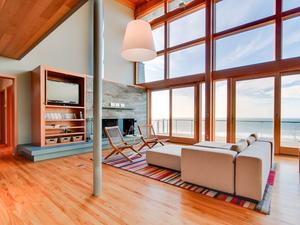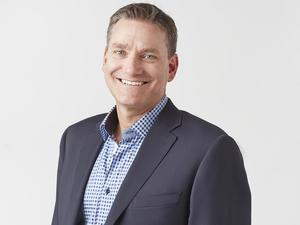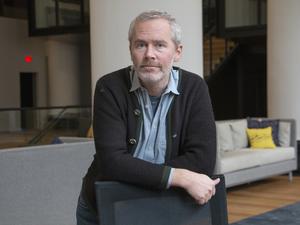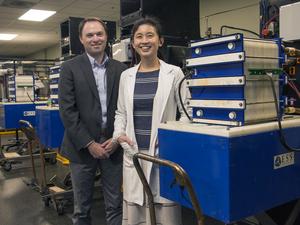
Portland-based Vacasa started trading as a public company Tuesday after completing a Special Purpose Acquisition Company merger that valued the company at $4.4 billion.
Through a merger with TPG Pace Solutions, Vacasa (Nasdaq: VCSA) raised $340 million that it will use to invest in technology development and growth of its business. Due to redemptions from TPGS shareholders prior to the deal close the transaction did not raise the full $485 million, which was the maximum it could raise.
Shares traded down more than 10% on its first day, around $9.82.
Vacasa was founded in 2009. The company is in the vacation rental market. It differentiates itself from others in the space by not only marketing rental homes and connecting customers with properties, but by also managing rentals for owners. Vacasa provides maintenance, booking and marketing and guest services. It uses a proprietary technology to set the best price for a specific unit to ensure booking and, according to the company, to maximize profit for the homeowner.
The company raised a huge amount from investors, especially for the Portland region, securing $634.5 million from private equity backers including Silver Lake, Riverwood Capital and Level Equity.
Want more Portland startup news? Sign-up for The Beat delivered to your inbox twice weekly
A handful of tenured employees joined the executive team and the board in New York to watch the start of trading on the Nasdaq Exchange, said Chief Financial Officer Jamie Cohen.
“It’s a really exciting day for Vacasa and all of our employees,” she said, noting that those who couldn’t make it had watch parties in Portland, Boise and Austin where it has offices. “Going back 12 years ago (when the company was founded) a ton of work got us here. It’s very exciting, but just one day as we look at the big future opportunity.”
The capital raised in this transaction will be used in two main areas, Cohen said. One, is acquisition of homes for the Vacasa platform. The company uses both direct sales to add homes individually as well as an acquisition strategy of buying up portfolios of smaller property managers.

Vacasa’s platform is largely a U.S. portfolio but it has a total of 35,000 units. Cohen added that there are 5 million U.S.-based vacation homes and 20 million globally. So, the company has “enormous opportunity to grow,” she said.
The company will also be investing heavily in its technology and product. CEO Matt Roberts has said publicly the company plans to triple its investment in technology. In November, Chief Product Officer Mike Xenakis outlined the company’s process for product development including its tech tools.
“We continue to build tools to maximize homeowner revenue,” said Cohen. This includes adding more transparency and visibility for the homeowner into activity at the property. She also highlighted technology development to enhance the guest experience and tools to help staff.
Vacasa’s decision to go public via a SPAC merger and not a traditional initial public offering could have gone either way. Cohen noted that the company is on track for $870 million in revenue this year and has an experienced management team who have run public companies in the past.
“We could have gone IPO but we found a good partner in TPG Pace Solutions and we got the same result,” she said.
TPG Pace Solutions was created by private equity firm TPG. The firm has experience with the travel industry and was an investor in Austin-based TurnKey, which Vacasa bought in March. Additionally, TPGPS had shareholder base already built around an understanding of hospitality.
SPACs typically IPO themselves at $10 a share and many offer warrants at $11.50. Cohen noted there were no warrants in this deal.
“It was an IPO-like SPAC (deal),” she said.
The company has essentially been releasing earnings since the second quarter. It reported a record third quarter. At the completion of the deal, Roblox Chief Marketing and People Experience Officer Barbara Messing and TPG Senior Partner Karl Peterson join the Vacasa board. Peterson was also the co-founder of travel site Hotwire.
“TPG Pace Solutions was attracted to Vacasa for its proven, scaled business model, favorable secular tailwinds, and experienced leadership team,” said Peterson in a written statement. “The Vacasa team has executed exceptionally well, with its previously updated full-year 2021 revenue guidance more than $100 million higher than the initial revenue target provided when we announced the proposed transaction in July.”
The last year and a half has been volatile for the travel industry amid the global Covid-19 pandemic. Vacasa was hit hard early on, but business rebounded and the company has figured out how to operate within the pandemic.
“We have seen a decades-long consumer preference shift to vacation rentals. That accelerated in the last 18 months,” Cohen said, particularly around people who had never rented a vacation home before. People are booking longer stays and combining remote work and travel.
The company had a record third quarter at the height of the delta variant surge. It hasn’t seen the emergence of the omicron variant affect bookings and occupancy for the fourth quarter.
“We see strength into 2022,” she said.








